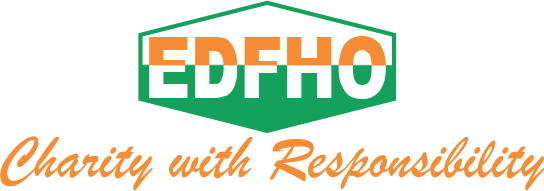Rapid and Effective Action Combating HIV/AIDS (REACH) Project
It is now widely recognized that the greatest health challenge of this age is that posed by infection with Human Immune-deficiency Virus (HIV). Since the first official case of AIDS in Nigeria was reported in 1986, the epidemic has expanded rapidly. The adult prevalence rate has increased from 1.8% in 1991 to 5.8% in 2001 and 4.1% in 2010. Estimates using the 2003 HIV/Syphilis sero-prevalence sentinel survey among women attending antenatal clinic indicates that between 3.2 and 3.8 million Nigeria aged 16-49 years are infected with the virus. The epidemic in Nigeria has extended beyond the commonly classified high-risk groups and is now common in the general population. HIV/AIDS is ravaging decades of development gains, increasing poverty undermining the very Foundation of progress and security. According to 2010 sentinel survey, Ekiti state is with an HIV prevalence rate of 1.4%, the second lowest in Nigeria after Kebbi state. Globally, HIV epidemic has stabilized, although with unacceptably high levels of new HIV infection and AIDS death, there were estimated 3.1 million people living with HIV at the end of 2010 in Nigeria. From the estimate, the highest prevalence fell within the aged 15-35 years which formed the age brackets of youths in tertiary institutions and reproductive age usually regarded as general population. In year 1 and 2, EDFHO had been working on HIV prevention intervention through REACH Project in Irepodun/Ifelodun Local Government Areas of Ekiti State using 6 communities namely, Igede, Igbemo, Iworoko, Iyin, Awo, Are/Afao as target communities using, in-school, out of school youths and general population as target population. The comprehensive HIV prevention programming coupled with multifaceted response from other stakeholders have been demonstrated to produced desired result. The 2012 National HIV/AIDS and Reproductive Health Survey-Plus (NARHS Plus) shows a significant reduction in HIV prevalence in Nigeria down from 4.1% to 3.4%, of important note is the prevalence level in Ekiti State dropping from 1.4% in 2010 to 0.2% in 2012 a significant 1.2% reduction in two years. To sustain such drastic reduction and achieve the Getting to Zero aim in Ekiti State, it was important to scale up comprehensive HIV programming using the Minimum Prevention of Intervention (MPPI) strategy in line with the National Prevention Plan. Having saturated the schools and almost all the communities in Irepodun/Ifelodun Local Government in the 2 preceding years, EDFHO continued behaviour maintenance activities in schools and communities of Irepodun/Ifelodun LGA while also building the capacity of esterblished Health Awareness Clubs and CBOs for sustainability. EDFHO also scaled up the prevention activities to two additional LGAs covering five (5) secondary Schools, One (1) Tertiary Institution and Three (3) Communities across Ekiti State towards behavioural change focusing on HIV reduction, promoting abstinence, mutual fidelity, as well as correct and consistent condom use among the target populations. EDFHO collaborated with SACA, LACAs, MoH, MoE, LGAs, and community institutions to achieve the desired results.
GOAL AND OBJECTIVES
The goal of the project was to reduce the spread and mitigate the impact of HIV/AIDS among in-school and general population aged 10-60 years in 3 LGAs in Ekiti State through HIV/AIDS information and capacity building that promotes behaviour change and HIV/AIDS prevention.
Specific objectives
- 1. To increase community collaboration and participation among stakeholders through advocacy and sensitization to create an enabling environment for community response to HIV/AIDS Prevention in Irepodun/Ifelodun LGA, Ekiti South West LGA and Ado-Ekiti LGA.
- 2. To build and strengthen the capacity of ISY- Secondary and Tertiary, and General Populations as peer educators to provide HIV/AIDS and Sexual Reproductive Health Information.
- 3. To improve knowledge amongst ISY and General Populations on life skills and behavioural change messages to make informed decisions.
- 4. To increase to 15% the proportion of young adult and general population who report having one sex partner and/or using condom correctly and consistently.
- 5. To increase access to existing HIV prevention services like STIs, condoms, HCT, among youths and general population10-60 years old by building linkages for referral between participating youth groups , general population and service facilities.
Copyright ©2020 EDFHO Nigeria. All Rights Reserved


